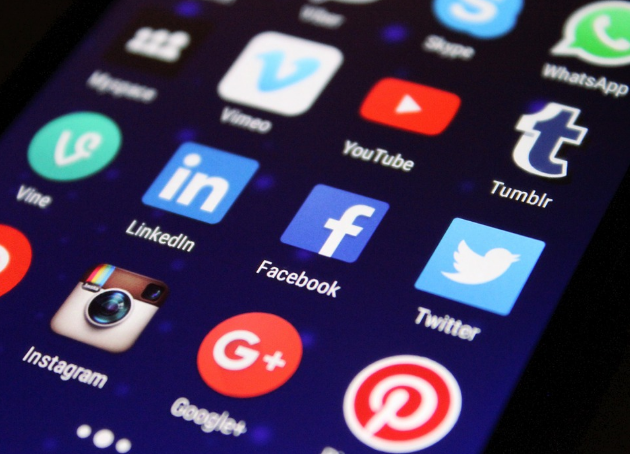Does social media really impact SEO?

In the past couple of years, there have been significant changes to the way Google’s search engine works. Google used to deny that social media has a direct effect on rankings, but now, social media URLs appear in search engines at a much larger scale. What we all really want to know is whether social media sharing actually helps improve search engine ranking. So, how closely linked are SEO and social media strategy?
There has been a lot of back and forth in the answer to this question. Most recently, however, Matt Cutts revealed that ‘social signals’ in fact do not impact SEO. Great - so, SEO specialists and marketers have been wasting their time?
Well, according to studies such as this one by Hootsuite, it seems that social can help SEO. Plus, with 90% of small business owners agreeing that social media was important to their business, it’s pretty difficult to completely discount it as a ranking factor.
All in all, it’s easy to see why so many are confused about the subject.
Visibility
More and more people are using social media networks such as Facebook and Twitter as search engines - they can now find what they’re looking for by searching within the apps themselves. This means that if you’re active on social media (i.e. sharing the content you produce and engaging with others), it’s possible that people will discover your business’s new content after searching for relevant terms. Using hashtags, particularly in Twitter and Instagram, will increase the visibility of your posts and we all know that the more discoverable your posts are, the higher your web traffic will be.

Links
Link building is paramount for strong SEO - the more high-quality backlinks your business has, the more authoritative Google will think your website is. In today’s day and age, creating original, helpful and engaging content is the best way to obtain links as people share it on social media.
“Links to your content on Facebook, Twitter, LinkedIn, Google+, YouTube and other social networks help the search engines understand what websites are credible and should be ranked for what keyword phrases.” - Brian Honigman
If your social post gets high engagement, your website will have higher visibility in Google’s SERP as the level of social engagement proves your authority on the subject. Plus, Matt Cutts says in his video that if something occurs on social sites and Google is able to crawl it, then it can return that in its search results, meaning that although the authority of a social account isn’t directly representational of a search rank, links posted on social networks could be noted as high-quality backlinks - and therefore impacting where that website ranks.
Followers, friends and foes
So, the amount of engagement a website gets on social media can influence its authority, but according to Honigman, so can your followers. The number of high-quality connections (i.e. not bots) someone has on their social media account can affect how their content is ranked. It’s a popularity competition - kind of like the X-Factor, but with much better content.
Basically, Google wants you to prove the credibility of your website. So, connecting with influencers and advocates within your industry could help boost your chances of getting on that ever-competitive page one of Google’s SERP.

Paid social media ads
Investing in paid social media advertising really pays off when executed correctly. StoreHub increased their sales conversion rates by 3.3x using a lead generation ad on Facebook, which meant they could be 74% more efficient in driving leads. You don’t need to spend loads of money to receive great results - if you know your audience well, social media advertising is well worth it. According to Hootsuite, paid promotion has nearly double the benefit of organic promotion, therefore proving a connection between effective SEO and social media strategy.
Personalisation
Personalisation drives frictionless, fast and feel-good experiences for customers. It’s so important, in fact, that the whole inbound methodology itself is changing from the traditional funnel model, where the focus is heavily on attracting new people - to a new ‘flywheel’ model, where delighting existing customers is key to growth. Personalising your marketing strategy isn’t just about inserting your customer’s name into the [/NAME] field in your emails, though - instead you need to really get to know them as humans. What are their priorities? Their likes, dislikes? What are their buying habits? And how can your business help them? Your social media connections and interactions can help this on a bigger scale - your posts on these networks can affect what results appear on search engines.
Plus, Google is smart - it’s like the annoying kid in class who doesn’t need to revise for exams to get straight A’s - it just knows everyone’s search history without being told. Because of this, customers will have an altered experience in their search results due to their connections and interactions on social media. Annoyingly smart.

SEO and social media strategy
So, despite Google denying any connection between social media and ranking on search pages, there seems to be quite a bit of evidence that, at least in some way, it does. Yup - Google’s ranking factors continue to be a mystery that not even the Scooby-Doo gang would be able to solve.
That’s why, as a starting point, we have developed a free marketing health check service, where we take a look at your current SEO and social media strategy to identify areas of improvement. We’ll also provide a website analysis and content review so that you can discover how to leverage your content, engage with your prospects and generate leads.
Just click the link below to get started.

Ready to Unlock AI SEO for Your Business?
AI SEO isn’t coming — it’s already here. Capture high-intent traffic and build sustainable pipeline growth.
Get Your Free Audit

